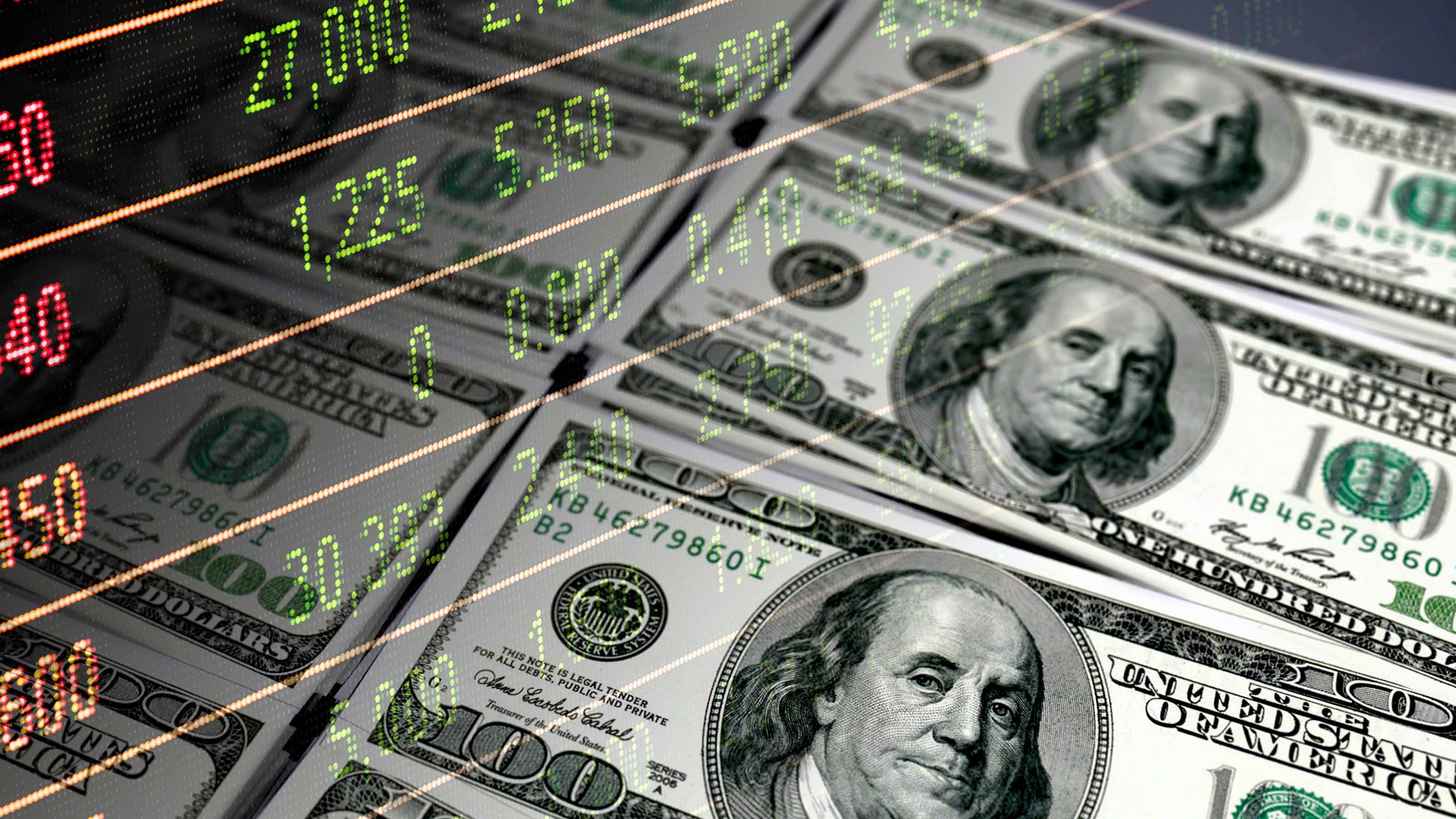The 5 Best BDC Stocks to Buy Now
The best BDC stocks are a small but sky-high-yielding industry that effectively act as private equity for the common investor.

Profit and prosper with the best of Kiplinger's advice on investing, taxes, retirement, personal finance and much more. Delivered daily. Enter your email in the box and click Sign Me Up.
You are now subscribed
Your newsletter sign-up was successful
Want to add more newsletters?

Delivered daily
Kiplinger Today
Profit and prosper with the best of Kiplinger's advice on investing, taxes, retirement, personal finance and much more delivered daily. Smart money moves start here.

Sent five days a week
Kiplinger A Step Ahead
Get practical help to make better financial decisions in your everyday life, from spending to savings on top deals.

Delivered daily
Kiplinger Closing Bell
Get today's biggest financial and investing headlines delivered to your inbox every day the U.S. stock market is open.

Sent twice a week
Kiplinger Adviser Intel
Financial pros across the country share best practices and fresh tactics to preserve and grow your wealth.

Delivered weekly
Kiplinger Tax Tips
Trim your federal and state tax bills with practical tax-planning and tax-cutting strategies.

Sent twice a week
Kiplinger Retirement Tips
Your twice-a-week guide to planning and enjoying a financially secure and richly rewarding retirement

Sent bimonthly.
Kiplinger Adviser Angle
Insights for advisers, wealth managers and other financial professionals.

Sent twice a week
Kiplinger Investing Weekly
Your twice-a-week roundup of promising stocks, funds, companies and industries you should consider, ones you should avoid, and why.

Sent weekly for six weeks
Kiplinger Invest for Retirement
Your step-by-step six-part series on how to invest for retirement, from devising a successful strategy to exactly which investments to choose.

Dividends allow investors to realize consistent cash returns and avoid the need to sell stocks at inopportune times, and few areas of the market produce higher dividends than the best BDC stocks.
BDCs, or business development companies, are like private equity funds for the common investor, though they have some important differences. Whereas private equity funds tend to be opaque, have long lockup periods and are restricted to high-net-worth and institutional investors, BDCs are publicly traded on the stock market and available to anyone with a brokerage account. They’re also completely transparent.
BDCs make debt and equity investments primarily in "middle market" companies that are generally a little too big for bank financing but not quite big enough to go public via an initial public offering (IPO).
Like their cousins, real estate investment trusts (REITs), BDCs were created by Congress to encourage investment in the real economy. Both benefit from preferential tax treatment, paying no income tax at the corporate level so long as they pay out at least 90% of their net income as dividends.
That’s why BDCs and REITs are generally some of the highest-yielding dividend stocks. They're legally mandated to pay out nearly every red cent, and the absence of taxes makes more cash available to pay.
Data is as of November 17. Dividend yields are calculated by annualizing the most recent payout and dividing by the share price.

Main Street Capital
- Market value: $5.1 billion
- Dividend yield: 5.3%
If BDC stocks are the proverbial Main Street, then let's start with Main Street Capital (MAIN).
Main Street is generally considered to be one of the best-managed BDCs in the space and a true blue-chip operator. What's more, it's a monthly dividend stock.
Main Street provides debt and equity financing to middle-market companies that are too large for a bank loan but not quite large enough to execute an IPO. The asset manager targets companies with annual revenue between $10 million and $150 million.
Remember: Business development companies are required to pay out at least 90% of their earnings as dividends. But BDC earnings can be cyclical. So, whenever earnings take even a short-term hit, many BDCs are put in the unfortunate position of having to choose between funding the dividend with debt or cutting it.
Main Street avoids that problem by keeping its regular dividend fairly modest and topping it off with special dividends, usually twice per year. In particularly good years, the "bonus" special dividends might be a little fatter than usual, and in bad years, they might get trimmed back.
At current prices, Main Street yields more than 5% based on its regular monthly dividend. It has paid three supplemental dividends of 30 cents per share in 2025 and declared another special dividend it will pay in December.
These extra payouts combine to boost Main Street's regular dividend yield for a total payout over the trailing 12 months that's north of 7%.

Blue Owl Capital
- Market value: $7.5 billion
- Dividend yield: 10.2%
Blue Owl Capital (OBDC) is a relative newcomer among BDC stocks, having started trading in 2019. The company, which was previously called Owl Rock Capital and traded under the ticker "ORCC," survived and thrived during those chaotic first years and continues to deliver a steady stream of dividends to its investors that adds up to a greater than 10% yield at current levels.
Like many of the BDCs covered here, Blue Owl follows a sensible policy of keeping its regular quarterly dividend comparatively modest and topping it up with special dividends as cash flows allow. Though so far in 2025, the company has paid out an extra 9 cents per share in special dividends, adding nearly 1% more in additional yield based on current levels.
Also like most BDCs, Blue Owl Capital tends to focus on middle market companies. Its typical portfolio company boasts annual EBITDA (earnings before interest, taxes, depreciation and amortization) from $10 million to $250 million.
Meanwhile, 74% of its portfolio consists of first-lien loans, with another 5% in second-lien loans. Fully 97% of its debt investments are floating rate.
The BDC’s top 10 positions account for 61.7% of its total portfolio. Software is its largest industry exposure at 12% of the portfolio, followed by at 8% and food and beverage at 6%.

TriplePoint Venture Growth BDC
- Market value: $242.8 million
- Dividend yield: 15.3%
TriplePoint Venture Growth BDC Corp (TPVG) is the smallest of the BDC stocks featured here, with a market cap of just $242.8 million. You should consider TPVG to be more speculative. Still, its 15.3% dividend yield and emphasis on growth make this BDC worthy of consideration.
TriplePoint provides debt and equity financing to venture growth-stage companies in technology and other high-growth industries. By the time a company is on TriplePoint's radar, it will generally have at least $20 million in revenues, a commanding market position, and is preparing for a liquidity event like an IPO.
And this isn't hypothetical. Its past successes have included household names such as YouTube, Facebook, Square, Beyond Meat (BYND) and Chegg (CHGG).
Meanwhile, 83.3% of TriplePoint's portfolio is invested in debt instruments, and of this figure, 66% are in floating-rate instruments.
TPVG pays a strong and growing regular dividend. But it also tops up this regular payout with special dividends when it has excess liquidity.

Ares Capital
- Market value: $14.1 billion
- Dividend yield: 9.5%
With a value of $14.1 billion, Ares Capital (ARCC) is the world's largest BDC by market capitalization.
It also happens to be one of the most conservatively allocated. As of November 17, 61.6% of its portfolio was invested in first-lien loans, with another 5.8% in second-lien loans. Only 17% or so is allocated to equity.
In other words, when push comes to shove, Ares is generally first in line to get paid (or awfully close to it).
ARCC is also very well diversified by sector. Software makes up 23.2% of the portfolio, with health care and professional services making up 11.9% and 11.4%, respectively. No other sector accounts for more than 7%.
Ares Capital has been aggressively raising its regular quarterly dividend since 2021, hiking it by 16.2% since June of that year. And ARCC has also been known to supplement its payouts with special dividends.
The company's juicy 9.5% yield is excellent for one of Wall Street's best BDC stocks, especially one with such a conservative profile.

Hercules Capital
- Market value: $3.1 billion
- Dividend yield: 10.7%
For a different, slightly more aggressive take on BDC stocks, consider Hercules Capital (HTGC). BDCs can generally be thought of as publicly traded private equity companies, but Hercules is different.
It operates more like a venture capital firm, which might sound like a distinction without a difference. The two terms often get lumped together, but private equity and venture capital are very different asset classes.
Private equity covers primarily established companies with relatively long track records. Venture capital tends to be the domain of startups.
Of course, focusing on newer companies is potentially a lot more exciting (and lucrative). But it's also generally going to be riskier than private equity.
And, as you might expect in this space, its biggest focuses are in technology, health care, software as a service (SaaS) and renewable energy.
Nearly all of HTGC's portfolio is invested in debt investments, and the vast majority of those debt investments are floating-rate instruments.
Like most of the other BDC stocks featured here, Hercules keeps its quarterly dividend relatively conservative and tops it up with supplemental dividends as cash flows allow.
Related content
Profit and prosper with the best of Kiplinger's advice on investing, taxes, retirement, personal finance and much more. Delivered daily. Enter your email in the box and click Sign Me Up.

Charles Lewis Sizemore, CFA is the Chief Investment Officer of Sizemore Capital Management LLC, a registered investment advisor based in Dallas, Texas, where he specializes in dividend-focused portfolios and in building alternative allocations with minimal correlation to the stock market.
-
 Quiz: Do You Know How to Avoid the "Medigap Trap?"
Quiz: Do You Know How to Avoid the "Medigap Trap?"Quiz Test your basic knowledge of the "Medigap Trap" in our quick quiz.
-
 5 Top Tax-Efficient Mutual Funds for Smarter Investing
5 Top Tax-Efficient Mutual Funds for Smarter InvestingMutual funds are many things, but "tax-friendly" usually isn't one of them. These are the exceptions.
-
 AI Sparks Existential Crisis for Software Stocks
AI Sparks Existential Crisis for Software StocksThe Kiplinger Letter Fears that SaaS subscription software could be rendered obsolete by artificial intelligence make investors jittery.
-
 5 Top Tax-Efficient Mutual Funds for Smarter Investing
5 Top Tax-Efficient Mutual Funds for Smarter InvestingMutual funds are many things, but "tax-friendly" usually isn't one of them. These are the exceptions.
-
 Why Invest In Mutual Funds When ETFs Exist?
Why Invest In Mutual Funds When ETFs Exist?Exchange-traded funds are cheaper, more tax-efficient and more flexible. But don't put mutual funds out to pasture quite yet.
-
 Social Security Break-Even Math Is Helpful, But Don't Let It Dictate When You'll File
Social Security Break-Even Math Is Helpful, But Don't Let It Dictate When You'll FileYour Social Security break-even age tells you how long you'd need to live for delaying to pay off, but shouldn't be the sole basis for deciding when to claim.
-
 I'm an Opportunity Zone Pro: This Is How to Deliver Roth-Like Tax-Free Growth (Without Contribution Limits)
I'm an Opportunity Zone Pro: This Is How to Deliver Roth-Like Tax-Free Growth (Without Contribution Limits)Investors who combine Roth IRAs, the gold standard of tax-free savings, with qualified opportunity funds could enjoy decades of tax-free growth.
-
 One of the Most Powerful Wealth-Building Moves a Woman Can Make: A Midcareer Pivot
One of the Most Powerful Wealth-Building Moves a Woman Can Make: A Midcareer PivotIf it feels like you can't sustain what you're doing for the next 20 years, it's time for an honest look at what's draining you and what energizes you.
-
 Stocks Make More Big Up and Down Moves: Stock Market Today
Stocks Make More Big Up and Down Moves: Stock Market TodayThe impact of revolutionary technology has replaced world-changing trade policy as the major variable for markets, with mixed results for sectors and stocks.
-
 I'm a Wealth Adviser Obsessed With Mahjong: Here Are 8 Ways It Can Teach Us How to Manage Our Money
I'm a Wealth Adviser Obsessed With Mahjong: Here Are 8 Ways It Can Teach Us How to Manage Our MoneyThis increasingly popular Chinese game can teach us not only how to help manage our money but also how important it is to connect with other people.
-
 Looking for a Financial Book That Won't Put Your Young Adult to Sleep? This One Makes 'Cents'
Looking for a Financial Book That Won't Put Your Young Adult to Sleep? This One Makes 'Cents'"Wealth Your Way" by Cosmo DeStefano offers a highly accessible guide for young adults and their parents on building wealth through simple, consistent habits.
